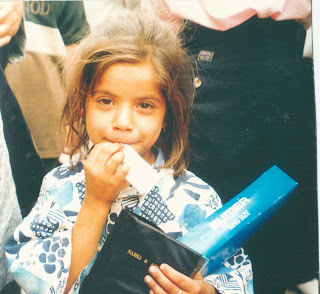IRAQ
I was not supposed to take photographs without permission of a minder. But one day everyone, including our minder, went to an Internet cafe, while I planned to nap in hopes of curing my bronchial cough. But when I suddenly realized I was alone, I dashed out to the street, and forgot about the rule against photographs. I had a lovely time joking around with these guys, but when I look at them now I find myself worrying about how this "group of men of military age possibly planning to plant an i.e.d. Our war in Iraq is supposedly over yet last month (May, '13) over a thousand people were killed. I keep wondering how many of them are still alive.
I wanted to see how women and children and men lived in Iraq. Because I was nearly always was with the group with little opportunity to have conversations with the people I met. But there were exceptions. |


























Your photo essay is poignant. Thanks for taking the time to post and caption the pictures, as they carry a powerful message.
ReplyDelete